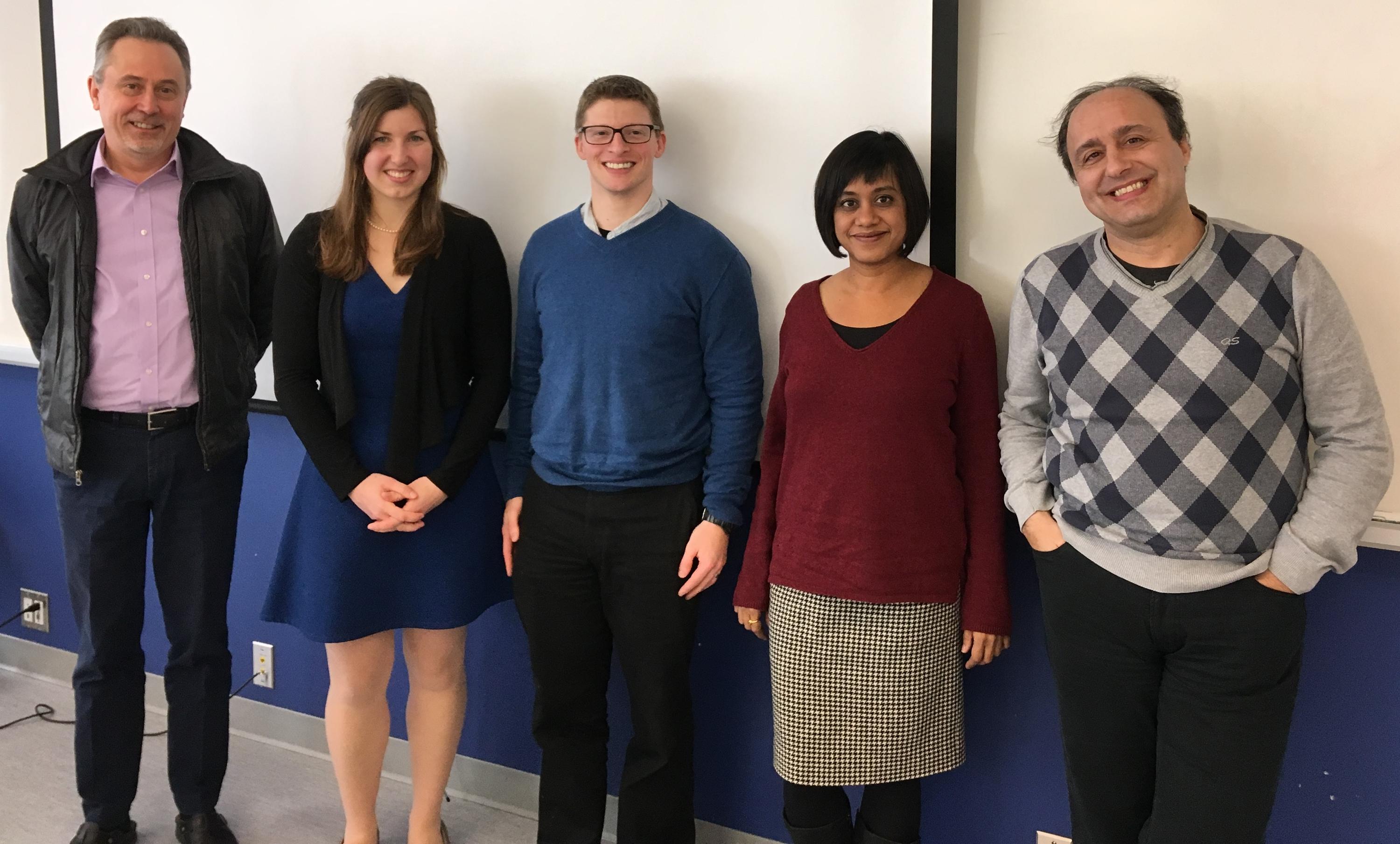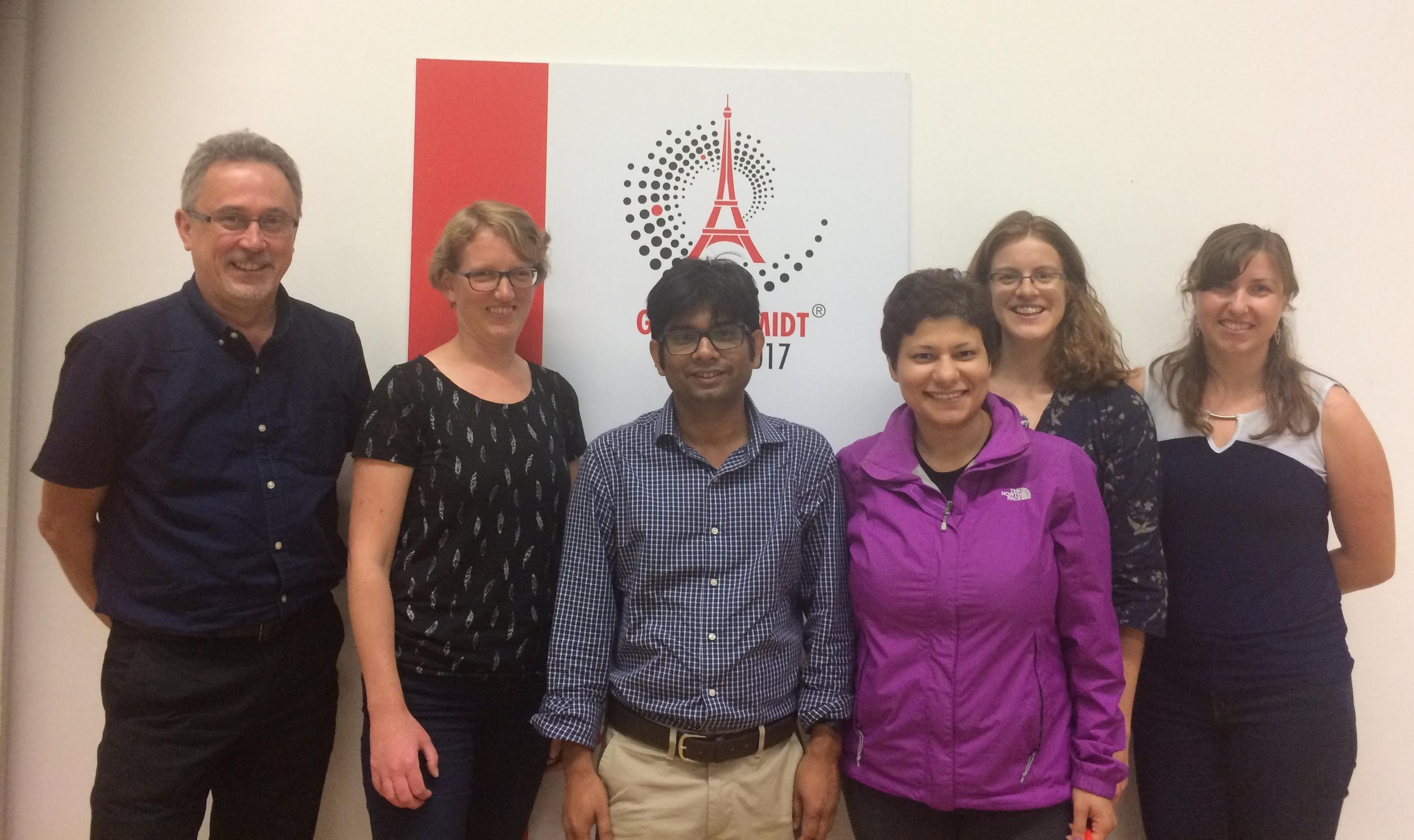Christine defends her MSc!


A chapter written by Ecohydrology Research Group members Helen Powley and Philippe Van Cappellen and their colleague Michael Krom, from the University of Haifa and University of Leeds, reviews the unique biogeochemistry of the Mediterranean Sea. In particular, the authors address why the Mediterranean Sea, a nearly entirely landlocked marine basin, has remained oligotrophic despite large anthropogenic inputs of the nutrient elements phosphorus and nitrogen.
Based on the strength of her academic accomplishments, Taylor Maavara is the recipient of a 2017 University of Waterloo “Outstanding Achievement in Graduate Studies” honour. A total of nine awards – five at the Doctoral level and four at the Master’s level – are presented this year. She will receive the award at Fall convocation on October 20th. CONGRATULATIONS, Taylor!
The International Society of Environmental Biogeochemistry is organizing its 23rd biannual Symposium on Environmental Biogeochemistry (ISEB23) in northern Queensland. This is the first time the Symposium is being held in Australia. Philippe Van Cappellen is presenting a talk on anthropogenic perturbations of nutrient cycles in river systems. This coming January, Philippe is taking over as President of the Society.
The Water Institute hosted the Sino-Canada Water Environment Workshop at the University of Waterloo (UW), from September 18th to 20th. The workshop featured a series of research presentations, including one by Ecohydrology Research Group member, Dr. Fereidoun Rezanezhad, who gave a presentation titled Nutrient dynamics, transfer and retention across scales: Integration of hydrological and biogeochemical processes.
The Royal Society of Canada (RSC) announced this year's new Fellows. We are very pleased that our colleague, Dr. David Blowes, is among them. Here is RSC's citation:
"BLOWES, David – Department of Earth and Environmental Sciences, University of Waterloo
This week, Ecohydrology Group members are presenting their research at the 2017 Goldschmidt conference (August 13-18, 2017) in Paris, France. With more than 4,000 attendees, the Goldschmidt conference is the largest geochemistry meeting in the world.

University of Waterloo (UW) researchers ran a full-day stakeholder workshop, held at the Grand River Conservation Authority (GRCA) office in Cambridge, Ontario on June 7th, 2017.
The aim of the workshop was to promote collaborations between stakeholders in the Great Lakes Region and UW researchers, working on various aspects of protecting and improving water quality in streams, lakes and groundwater in the Great Lakes Region.
The Water Institute has awarded Seed Grant Program funding to five research proposals. Members of the Ecohydrology Research Group are involved in two of funded projects:
In a new paper published in Journal of Geophysical Research: Oceans, Ecohydrology group members, Helen Powley and Philippe Van Cappellen, and collaborator Michael Krom, report on the sensitivity of dissolved oxygen distributions within the Mediterranean Sea to future climate driven changes in its thermohaline circulation. The results indicate that the oxygenation of the Mediterranean Sea is quite resilient to the projected changes in circulation.